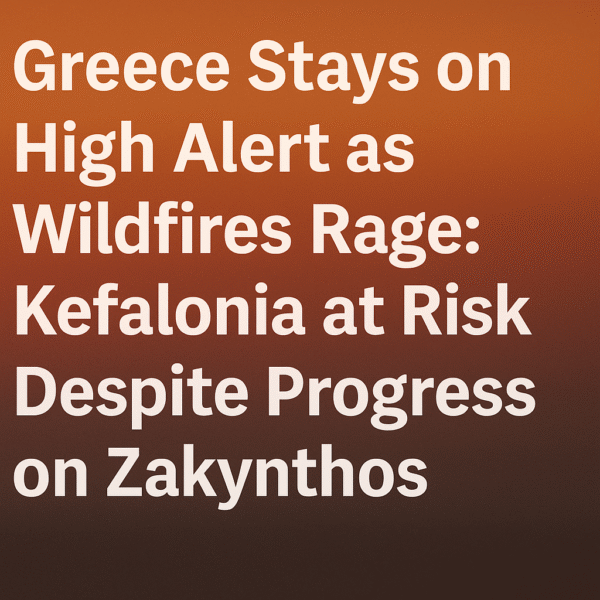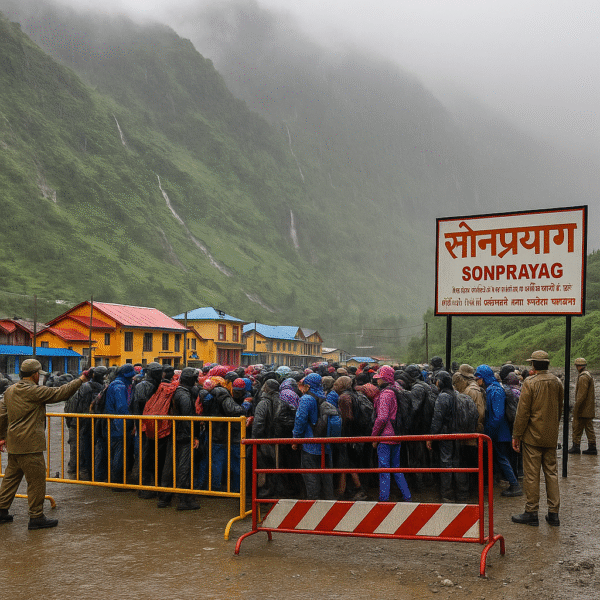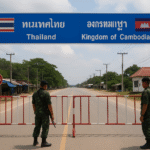Is It Safe to Travel to Cyprus? Key Safety Tips Amid Israel-Iran Conflict and Regional Tensions
As regional tensions between Israel and Iran intensify, British and international travelers planning a visit to Cyprus are advised to stay informed and take proactive safety measures. Despite being a peaceful and popular Mediterranean destination, Cyprus’s proximity—just 145 miles from the conflict zone—has raised traveler concerns. The UK Foreign Office and travel expert Simon Calder both highlight the importance of situational awareness, though there are currently no official travel warnings for Cyprus itself.
With the latest conflict escalation triggered by Israeli airstrikes on Iran on June 13, 2025, followed by U.S. involvement targeting Iranian nuclear infrastructure, the geopolitical landscape in the Eastern Mediterranean remains volatile. While Cyprus is not directly involved in the hostilities, the nation’s geographic closeness to the turmoil necessitates cautious travel planning.
Why Travelers Are Concerned
Cyprus continues to attract millions with its sun-kissed beaches, ancient ruins, and resort towns like Ayia Napa and Paphos. However, its strategic location in the Eastern Mediterranean—coupled with its use as a base by NATO and European forces—places it within potential range of any expanding regional conflict.
The UK Foreign Office has stopped short of issuing a blanket travel ban to Cyprus. Instead, it emphasizes that the “ongoing hostilities in the Middle East could escalate quickly and pose security risks for the wider region.” This cautious language leaves many travelers uncertain about their upcoming plans.
According to Simon Calder, a veteran travel correspondent, there is currently no need to cancel trips to Cyprus, but travelers must remain vigilant and prepared for sudden disruptions. His guidance aligns with broader industry advice: plan smart, stay flexible, and avoid panic-driven decisions.
Understanding the Regional Risk
Cyprus is not a conflict participant, but its proximity and strategic role mean it could experience secondary effects, including:
- Airspace Management: Military activity near the region could prompt temporary airspace restrictions, leading to flight delays or reroutes.
- Port and Maritime Alerts: As naval presence increases in the Eastern Mediterranean, ferry services or cruise itineraries could be affected.
- Military Operations: While unlikely to directly involve tourist areas, increased movement by allied forces might trigger travel adjustments or cause heightened airport security.
Official Advisories and Practical Tips
Travel advisories are often nuanced. As of late June 2025, both the UK Foreign Office and the U.S. State Department advise heightened awareness but maintain Cyprus as a viable tourist destination. In this context, travelers are encouraged to follow several essential tips:
1. Stay Informed Daily
Subscribe to alerts from your national foreign office and follow reputable news sources. Set up notifications from Cyprus’s Deputy Ministry of Tourism, and consult local embassy resources for emergency notifications.
2. Register with Your Embassy
Registering with your country’s embassy ensures that you can be located and supported if the situation worsens. The UK government’s “Travel Aware” portal and the U.S. Smart Traveler Enrollment Program (STEP) are examples of such services.
3. Monitor Airline Communications
Due to potential airspace disruptions, stay in close contact with your airline. Confirm flights at least 24 hours before departure and monitor real-time updates via airline apps or flight tracking tools.
4. Limit Travel Near Military Zones
Avoid visiting areas close to military installations or border zones. Tourist-friendly locations like Larnaca, Limassol, and the Troodos Mountains remain far from these sensitive regions and are currently unaffected.
5. Consult Local Authorities on Arrival
Upon arriving in Cyprus, seek updates from local tourism offices or police departments about areas to avoid. The Cyprus Tourism Organization regularly posts safety bulletins in English and other major languages.
6. Keep Essentials Ready
Always carry your passport, emergency contacts, and local currency. Maintain access to communication tools, and have a backup plan for your accommodations and transportation.
7. Avoid Large Gatherings and Protests
While Cyprus has remained politically stable, regional tensions can sometimes lead to peaceful protests or demonstrations. Tourists should avoid these areas, even if they seem calm, to minimize risk.
Cyprus Remains Open—With Caution
Despite the uncertainty in the broader Middle East, Cyprus itself remains calm. Flights continue to operate, hotels are welcoming tourists, and local businesses report normal activity. Nonetheless, it is prudent to understand that the situation is dynamic.
The Cyprus government has not issued any domestic travel restrictions. In fact, the Deputy Ministry of Tourism is actively reassuring visitors that all major attractions and resorts are operating safely. However, contingency planning is vital. Flexibility with travel dates and accommodations may be beneficial if conditions change.
Final Thoughts
Cyprus remains a desirable and largely safe destination, even as regional tensions rise. For those committed to visiting, awareness and preparedness are essential. Follow official travel advisories, stay connected with your embassy, and avoid high-risk areas. Travel insurance that includes coverage for political unrest is also highly recommended.
The Mediterranean island’s charm—from its UNESCO-listed archaeological sites to its crystal-clear beaches—continues to captivate visitors. With smart planning, travelers can still enjoy all that Cyprus has to offer, even amid global uncertainty.
For more travel news like this, keep reading Global Travel Wire
















